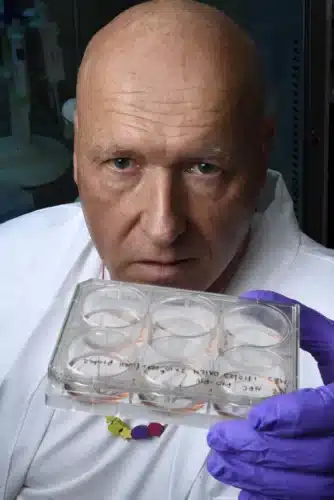Researchers at John Hopkins University have developed brain organoids that can give rise to an effective biocomputer.
For nearly two decades scientists have used tiny organoids, lab-grown tissue resembling fully grown organs, to experiment on kidneys, lungs, and other organs without resorting to human or animal testing. Researchers believe that a “biocomputer” powered by human brain cells could be developed within our lifetime. This technology is expected to exponentially expand the capabilities of modern computing and open up new areas of research.

Researchers at Johns Hopkins have been working with brain organoids, orbs the size of a pen dot with neurons and other features that promise to sustain basic functions like learning and remembering. Thomas Hartung, a professor of environmental health sciences at the Johns Hopkins Bloomberg School of Public Health and Whiting School of Engineering began to grow and assemble brain cells into functional organoids in 2012 using cells from human skin samples reprogrammed into an embryonic stem cell-like state. Each organoid contains about 50,000 cells, about the size of a fruit fly’s nervous system. He now envisions building a futuristic computer with such brain organoids.
Computers that run on this “biological hardware” could in the next decade begin to alleviate energy-consumption demands of supercomputing that are becoming increasingly unsustainable, Hartung said. Even though computers process calculations involving numbers and data faster than humans, brains are much smarter in making complex logical decisions, like telling a dog from a cat.
It might take decades before organoid intelligence can power a system as smart as a mouse, but by scaling up production of brain organoids and training them with artificial intelligence, biocomputers can support superior computing speed, processing power, data efficiency, and storage capabilities. Organoid intelligence could also revolutionize drug testing research for neurodevelopmental disorders and neurodegeneration, said Lena Smirnova, a Johns Hopkins assistant professor of environmental health and engineering who co-leads the investigations.
Reference: “Organoid intelligence (OI): the new frontier in biocomputing and intelligence-in-a-dish”, 27 February 2023, Frontiers in Science.
DOI: 10.3389/fsci.2023.1017235







